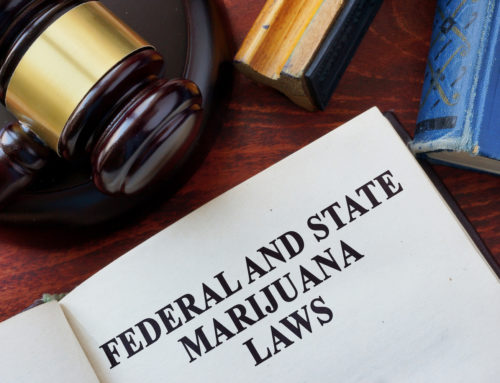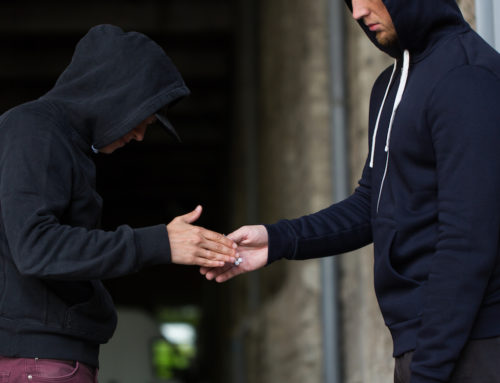 When arrested in California on criminal charges many defendants’ first call is not to an attorney but rather to a bail bondsman in hopes of getting out of jail immediately. Typically, a bail bonds company in California will require a defendant in custody to come up with 10% of the actual scheduled bail. Even in a misdemeanor domestic violence case the bail will typically be set at $50,000.00 and a defendant or their family will have to come up with $5000.000. If a person is bailed out they typically will be given a court dates weeks even months after the arrest depending how busy the city or county in California is with criminal case filings. A problem arises since a 2010 court case where the court loses jurisdiction over a case after 15 days after an arrest and any filing after the 15 days requires a new bail to be set requiring a defendant to post bail a second time which often creates a significant financial hardship or leaves a defendant with no additional funds to have to spend time in custody until the case is resolved.
When arrested in California on criminal charges many defendants’ first call is not to an attorney but rather to a bail bondsman in hopes of getting out of jail immediately. Typically, a bail bonds company in California will require a defendant in custody to come up with 10% of the actual scheduled bail. Even in a misdemeanor domestic violence case the bail will typically be set at $50,000.00 and a defendant or their family will have to come up with $5000.000. If a person is bailed out they typically will be given a court dates weeks even months after the arrest depending how busy the city or county in California is with criminal case filings. A problem arises since a 2010 court case where the court loses jurisdiction over a case after 15 days after an arrest and any filing after the 15 days requires a new bail to be set requiring a defendant to post bail a second time which often creates a significant financial hardship or leaves a defendant with no additional funds to have to spend time in custody until the case is resolved.
- California Courts Jurisdiction to Set Bail in Criminal Cases
Up until 2010, the whether or not charges were filed by a district attorney in a criminal case, the practice of most courts in California whether your case was filed in Los Angeles, Palmdale, Pasadena, San Bernardino, Ontario or any other city in California, the court would maintain jurisdiction over a bond even if the prosecutor had not filed charges by the time of the first court appearance typically called an arraignment. Many times defendants and their attorneys will show up for an arraignment and no charges will have been filed for different reasons including the fact that law enforcement has not completed their investigation or have not provided the police report to the district attorney so they may determine if to file charges and what charges to file. In those cases, an arraignment is set for a later date and the court would either maintain jurisdiction on a bond or at times allow a defendant to remain free on their own recognizance.
However, in California Court of Appeal case of People v. Luberman’s Insurance, (2010) 190 Cal.App.4th 823, the law in California changed. In Luberman, the California Appeals court held that if a prosecutor did not file criminal charges within the statutory period of 15 days, the court lost jurisdiction over a bond. This meant that if charges were filed after 15 days, the court would set a new bail amount based on the bail schedule for the charges filed requiring a defendant who had previously spent money to bail out to post a new bail to get out of custody. In many cases, a defendant or their family simply would not have the financial means to post bail twice especially if they needed funds to hire an experience criminal lawyer to defend the criminal case. This would leave an unjust result unless a defense attorney could argue and present evidence allowing for a defendant to be released on their own recognizance which would allow a defendant to be released without having to post additional bail.
- Amendment to California Penal Code section 1305 — The California Bail Exoneration Bill
Today an injustice has been rectified with the passing California Bill AB 2655 known as the ”Bail Exoneration Bill.” The new California criminal law amends California Penal Code section 1305 to allow a court to maintain jurisdiction over a bond for up to 90 days even if a prosecutor does not file timely criminal charges. The new law was signed by Governor Jerry Brown today which will allow criminal defense attorneys to resolve cases in a more productive way especially when prosecutor’s become backed up in filing criminal complaints which occurs in numerous jurisdictions in California.
It is very common for people to want to bail out of jail as soon as possible especially persons with a low bail or people who have never served any time in custody. However, person should be made aware that if you decide not to post bail right away especially if you want to hire a seasoned criminal lawyer in California, the government has to give you a hearing within 48 hours from the time of your arrest. Typically, many lawyers will then have to opportunity to argue for a reduction in bail for an accused or request that a defendant be released on their own recognizance.
Courts will typically look at the nature of the charges, the likelihood of a defendant becoming flight risk, a defendant’s ties to the community and their past criminal record along with other circumstances in determining whether to lower bail or release a person in custody on their own recognizance. It always best to retain or hire an experienced criminal attorney who can provide the proper information and make a bail reduction or OR request to a criminal law judge.
If you need advice or would like to retain a criminal lawyer in California please call Leib Law at (844) 210-1701.





